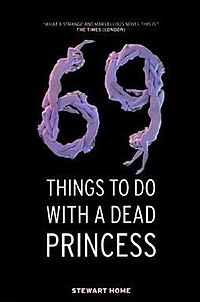
Irvine Welsh is a Scottish novelist, playwright and short story writer. His 1993 novel Trainspotting was made into a film of the same name. He has also written plays and screenplays, and directed several short films.

Alexander Whitelaw Robertson Trocchi was a Scottish novelist.

Simone Lucie Ernestine Marie Bertrand de Beauvoir was a French existentialist philosopher, writer, social theorist, and feminist activist. Though she did not consider herself a philosopher, nor was she considered one at the time of her death, she had a significant influence on both feminist existentialism and feminist theory.
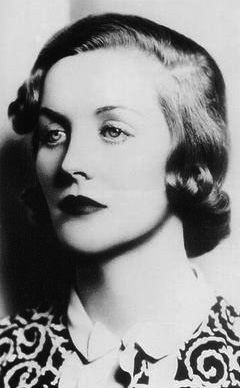
Diana, Lady Mosley was a British aristocrat, fascist, writer and editor. She was one of the Mitford sisters and eventually, the wife of Oswald Mosley, leader of the British Union of Fascists.

Alexander Bain was a Scottish philosopher and educationalist in the British school of empiricism and a prominent and innovative figure in the fields of psychology, linguistics, logic, moral philosophy and education reform. He founded Mind, the first ever journal of psychology and analytical philosophy, and was the leading figure in establishing and applying the scientific method to psychology. Bain was the inaugural Regius Chair in Logic and Professor of Logic at the University of Aberdeen, where he also held Professorships in Moral Philosophy and English Literature and was twice elected Lord Rector of the University of Aberdeen.
Kevin Llewellyn Callan, better known as Stewart Home, is an English artist, filmmaker, writer, pamphleteer, art historian, and activist. His novels include the non-narrative 69 Things to Do with a Dead Princess (2002), and the re-imagining of the 1960s in Tainted Love (2005). Earlier parodistic pulp fictions work includes Pure Mania, Red London, No Pity, Cunt, and Defiant Pose which pastiche the work of 1970s British skinhead pulp novel writer Richard Allen and combine it with pornography, political agit-prop, and historical references to punk rock and avant-garde art.

Erotic literature comprises fictional and factual stories and accounts of eros intended to arouse similar feelings in readers. This contrasts erotica, which focuses more specifically on sexual feelings. Other common elements are satire and social criticism. Much erotic literature features erotic art, illustrating the text.
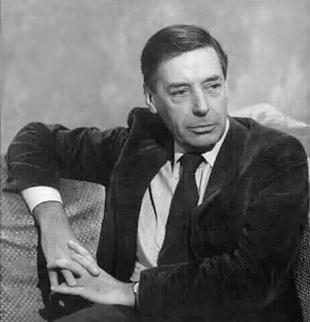
Sir Bernard Arthur Owen Williams, FBA was an English moral philosopher. His publications include Problems of the Self (1973), Ethics and the Limits of Philosophy (1985), Shame and Necessity (1993), and Truth and Truthfulness (2002). He was knighted in 1999.

James John Herbert, OBE was an English horror writer. A full-time writer, he also designed his own book covers and publicity. His books have sold 54 million copies worldwide, and have been translated into 34 languages, including Chinese and Russian.
John Stoltenberg is an American author, activist, magazine editor, college lecturer, playwright, and theater reviewer who identifies his political perspective as radical feminist. For several years he has worked for DC Metro Theater Arts and is currently its executive editor. He has written three books, two collections of his essays and a novel. He was the life partner of Andrea Dworkin for 30 years and has lived with his husband, Joe Hamilton, for over 15 years.
Alan Warner is a Scottish novelist who grew up in Connel, near Oban. His notable novels include Morvern Callar and The Sopranos – the latter being the inspiration for the play Our Ladies of Perpetual Succour and its subsequent film adaptation, Our Ladies.

Tipping the Velvet (1998) is a historical novel by Sarah Waters; it is her debut novel. Set in England during the 1890s, it tells a coming of age story about a young woman named Nan who falls in love with a male impersonator, follows her to London, and finds various ways to support herself as she journeys through the city. The picaresque plot elements have prompted scholars and reviewers to compare it to similar British urban adventure stories written by Charles Dickens and Daniel Defoe.

The Line of Beauty is a 2004 Man Booker Prize-winning novel by Alan Hollinghurst.
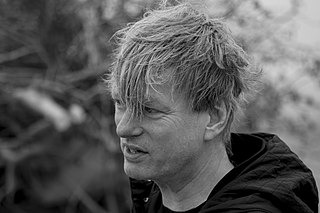
Michel Faber is a Dutch-born writer of English-language fiction, including his 2002 novel The Crimson Petal and the White. His latest book is a novel for young adults, D: A Tale of Two Worlds, published in 2020. His next book, Listen, a non-fiction work about music, is due in 2023.

Virginie Despentes is a French writer, novelist, and filmmaker. She is known for her work exploring gender, sexuality, and people who live in poverty or other marginalised conditions.

Leila Fuad Aboulela is a fiction writer, essayist, and playwright of Sudanese origin based in Aberdeen, Scotland. She grew up in Khartoum, Sudan, and moved to Scotland in 1990 where she began her literary career. Until 2023, Aboulela has published six novels and several short stories, which have been translated into fifteen languages. Her most popular novels, Minaret (2005) and The Translator (1999) both feature the stories of Muslim women in the UK and were long-listed for the International Dublin Literary Award and Orange Prize. Aboulela’s works have been included in publications such as Harper's Magazine, Granta, The Washington Post and The Guardian. BBC Radio has adapted her work extensively and broadcast a number of her plays, including The Insider, The Mystic Life and the historical drama The Lion of Chechnya. The five-part radio serialization of her 1999 novel The Translator was short-listed for the Race In the Media Award (RIMA). Aboulela’s work is critically acclaimed for its depiction of Muslim migrants in the West the and the challenges they face. Her work is heavily influenced by her own experiences as an immigrant to the United Kingdom and the hardships she experienced during the transition. Her work centers around political issues and themes such as identity, multi-cultural relationships, the East-West divide, migration, and Islamic spirituality. Her prose has been celebrated by J.M Coetzee, Ben Okri and Ali Smith. Her novel River Spirit was praised by Abdulrazak Gurnah for its "extraordinary sympathy and insight".

Justin Fritz Leiber was an American philosopher and science fiction writer. He was the son of fantasy, horror and science fiction author Fritz Leiber and the grandson of stage and film actor Fritz Leiber, Sr. Previously a professor of philosophy at the University of Houston, Leiber was most recently a professor emeritus of philosophy at Florida State University. He was a visiting fellow at Linacre College, Oxford during the Trinity term on numerous occasions.
Debbie Nathan is an American feminist journalist and writer, with a focus on cultural and criminal justice issues concerning abuse of children, particularly accusations of satanic ritual abuse in schools and child care institutions. She also writes about immigration, focusing on women and on dynamics between immigration and sexuality. Nathan's writing has won a number of awards. She appears in the 2003 Oscar-nominated film Capturing the Friedmans. She has been affiliated with the National Center for Reason and Justice, which, among other things, provides support to persons who may have been wrongly accused of sexual abuse.
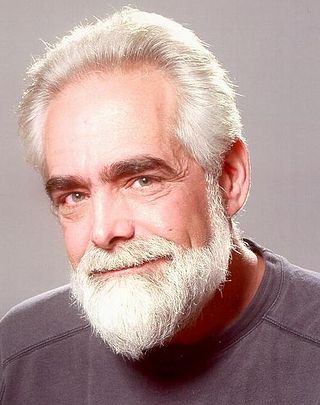
Alan Gerald Soble is an American philosopher and author of several books on the philosophy of sex. He taught at the University of New Orleans from 1986 to 2006. He is currently Adjunct Professor of philosophy at Drexel University in Philadelphia.

Lost Girls is a graphic novel written by Alan Moore and illustrated by Melinda Gebbie, depicting the sexually explicit adventures of three female fictional characters of the late 19th and early 20th century: Alice from Lewis Carroll's Alice's Adventures in Wonderland and Through the Looking-Glass, Dorothy Gale from L. Frank Baum's The Wonderful Wizard of Oz, and Wendy Darling from J. M. Barrie's Peter and Wendy. They meet as adults in 1913 and describe and share some of their erotic adventures with each other.
